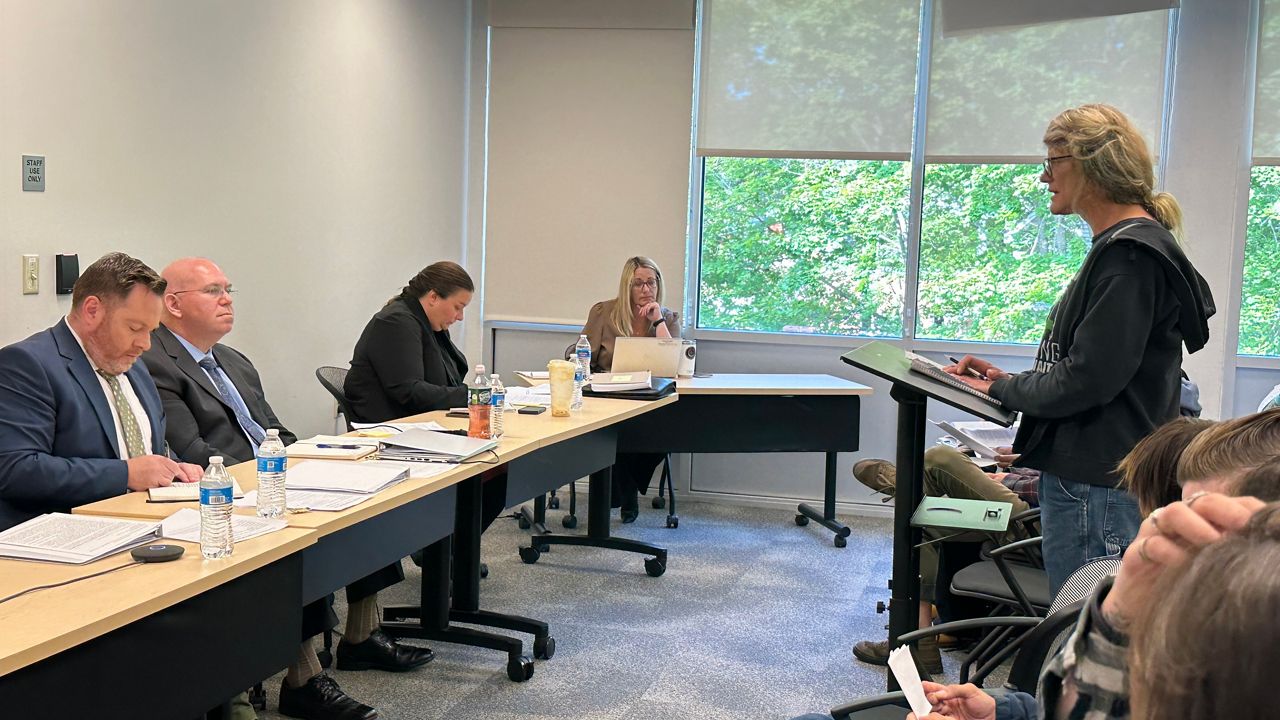Medical cannabis caregivers told state regulators Tuesday they are worried that proposed rules will make it harder for them to operate amid rising electric costs, falling prices and competition from the recreational market.
The revised regulations, written in response to directives from state lawmakers, clarify requirements for fencing, require caregivers with a storefront to retain video footage for 14 days and expands the state’s authority to issue fines, said Vern Malloch, deputy director of operations for the Office of Cannabis Policy.
Most of those who spoke at the public hearing said they were worried about whether the state is going to make it harder for medical caregivers to do business and for patients to get their medicine.
Medical cannabis patient Mary Spencer of Winthrop said the pain she suffers following a brain injury can only be addressed by cannabis.
“I can’t afford to go to those stores and buy it,” Spencer said. “I need this medicine and I’m afraid you’re going to take it away. I love my gardeners and I know they are not putting pesticides on my stuff.”
Spencer and several others referred to the possibility of new testing requirements, but they are not proposed in the current batch of revisions, Malloch said.
Two recent studies of medical cannabis sold in Maine found that nearly half of all samples contained at least one banned material or substance, the Portland Press Herald reported last week.
Maine requires cannabis sold in recreational stores to test their products. The state does not have a similar requirement for medical cannabis.
It’s one of the differences between the two markets that sell similar products. The medical program, first approved by voters in 1999, generated about $300 million in sales last year.
On the recreational side, retail sales doubled from 2021 to 2022, growing from about $82 million to nearly $159 million.
Through August, recreational cannabis retail sales topped $140 million, representing more than 2.4 million transactions.
And while the medical side continues to show strong sales, the program saw a 25% decrease in the number of registered caregivers from 2021 to 2022, with the lowest number of caregivers since registrations began in 2014, according to an annual report on the industry.
Last year, there were 2,276 registered caregivers, down from 3,032 the previous year.
As of Aug. 31, there were 1,886 registered caregivers and more than 10,000 patient certificates.
However, even though the number of caregivers dropped, the number of active dispensaries nearly tripled and patient certifications continued to increase, the report noted.
In an August interview, Office of Cannabis Policy Director John Hudak said his office is committed to making sure both the medical and recreational industries continue to serve patients and consumers in Maine.
“Nearly 10% of adult Mainers are registered medical program participants,” he said. “It’s a commitment of this office that adult use doesn’t become competitive with the medical program.”
At the Tuesday hearing, Mark Barnett of Auburn, owner of Higher Grounds of Maine, said he feels that the proposed expansion of fines is unnecessarily punitive.
“It’s a hammer looking for a nail in some cases,” he said. “Cracking down on practices doesn’t really feel like the role of a taxpayer funded civil agency when there really is no significant public safety harm or damage that’s been reported. These changes overall are just new obstacles to doing business.”
The Office of Cannabis Policy will accept written comments on the rules until Oct. 10. The rules will then be forwarded to lawmakers who will provide another chance for public comment.



